Updated on November 20th, 2023
Vanilla extract is a simple but vital flavoring agent in baked goods and desserts. Pure vanilla is extracted from tropical vanilla pods, also known as the tropical vanilla planifolia. These magic pods are responsible for the rich flavor of the liquid flavoring. Many of the baked goods and delicious recipes we all enjoy contain vanilla extract. The flavor-enhancing aroma can not be missed.
Also, Apart from the sweet sensational aroma, vanilla extract has a lot of health benefits such as providing antioxidant effects, benefitting brain health, providing antiinflammatories properties, and so on. The taste of your cookies can never be the same without the presence of vanilla extract; without it, the outcome would be a flat and bland taste.
There are so many reasons you might want to look for substitutes for vanilla extract in your cookies. For example, you might prefer an alcohol-free option, as vanilla extract contains at least 35% alcohol. You might not have it when you need it. You perhaps prefer another flavor. Other alternatives could do the trick.
What is Vanilla Extract?
Vanilla extract is an essential ingredient in a lot of, but not limited to, Western desserts, especially in baked goods such as brownies, cakes, cupcakes, and cookies, which is the subject of discussion here. Pure vanilla extract contains several hundred additional flavor compounds responsible for its complex, deep flavor.
Vanilla extract is a liquid component made by soaking vanilla pods in a solution of alcohol (ethanol) and water. Of all forms of vanilla used today in cooking, drinking, and baking, vanilla extract is the most used form.
The common amount of vanilla extract used is one teaspoon when baking cookies. For one teaspoon of vanilla extract, there are several diverse milligrams of calories, protein, carbohydrates, sugar, and fat, making it a healthy solution and a wonderful addition to your baking recipes.
Vanilla extract uses in recipes
Although this article focuses on ways to substitute vanilla extract in cookies, there are so many other uses of vanilla extract. Its deep flavor and a sweet aroma make it a viable option as a sweetening agent in baked foods and custard, puddings, ice creams, etc.
- Pancakes
- Waffles
- Smoothies
- Yogurt
- French toast
- Baked or roasted fruits
- Cocktails
- Barbeque and grilling
- Tomato sauce
- Other savory sauces
- Craft coffee drinks
- Cakes
- Bread cinnamon pudding
- Ice cream
- Fried coconut rolls
Vanilla extract substitute in cookies
Whether you’re trying to avoid the alcohol content or you prefer another option, or you can’t get a hold of vanilla extract in your cookies when you need it. Fortunately, there are other close alternatives. So let’s browse through some of them.
Vanilla paste
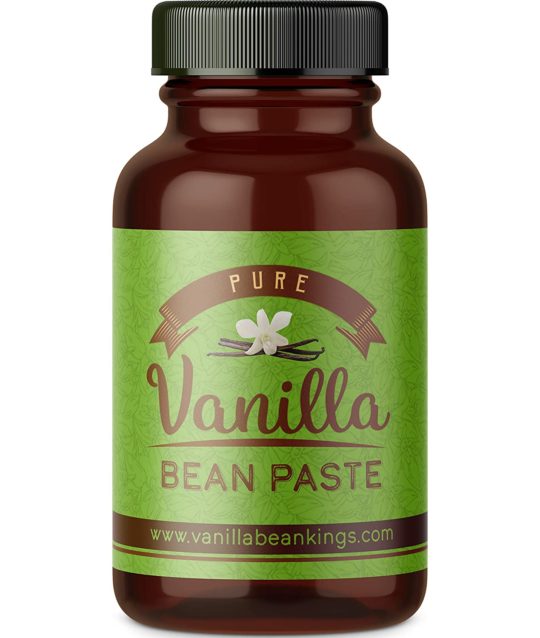
The term paste might lead you to think about what the texture and outcome of your cookies would be like; do not fret. It is not as think as you’d think. It has the same appearance as syrup, so it is absolutely a great replacement.
Vanilla paste is a combination of the extract of vanilla, vanilla beans, and the required amount of sugar. It has a very dominant intense flavor and a smooth texture and contains the distinctive black flecks of vanilla beans. And because of its similar properties, it can be used proportionally in equal quantity as you would vanilla extract.
Vanilla powder
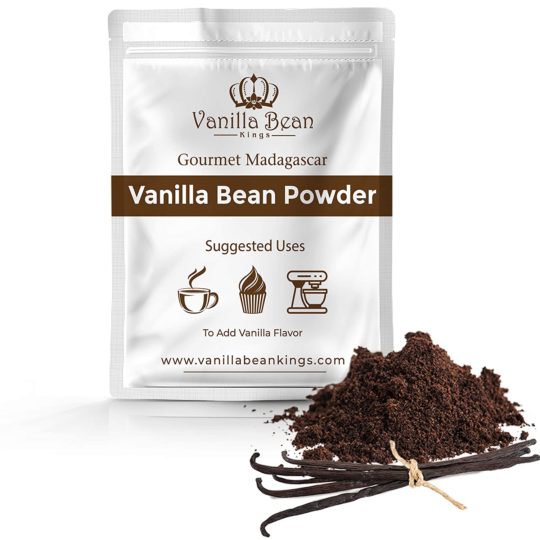
This is a fine and light-colored powder made of vanilla beans. It is preferred in frostings and pale cakes. It is also intense. High temperatures may cause the vanilla extract to evaporate, making a baked good less flavorful. Vanilla powder is unaffected by high heat, meaning it retains an intense flavor.
Like vanilla extract, vanilla powder is also very versatile. It gives a good result when used with cookies and other baked foods, oatmeal, cereals, coffee or chocolate, etc. It can also be used in the same ratio as vanilla extract.
Almond extract
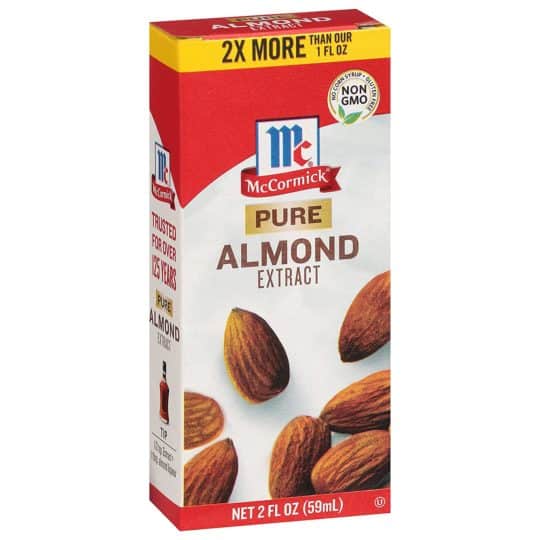
It is common knowledge that people use almond extract in cookies. However, you can never miss the nutty flavor of almond extract because it is way stronger than vanilla extract. However, if you use too much of it, it can change the taste of your cookies to a slightly bitter taste.
Sometimes if you’re using vanilla extract in cookies and the sugar content underwhelms you, or the taste isn’t as sweet as you want it, the addition of almond extract adds a great deal more flavor, elevating these sugar cookies to your taste. Also, note that it should be used in reduced quantity because of its stronger flavor.
Marple Syrup
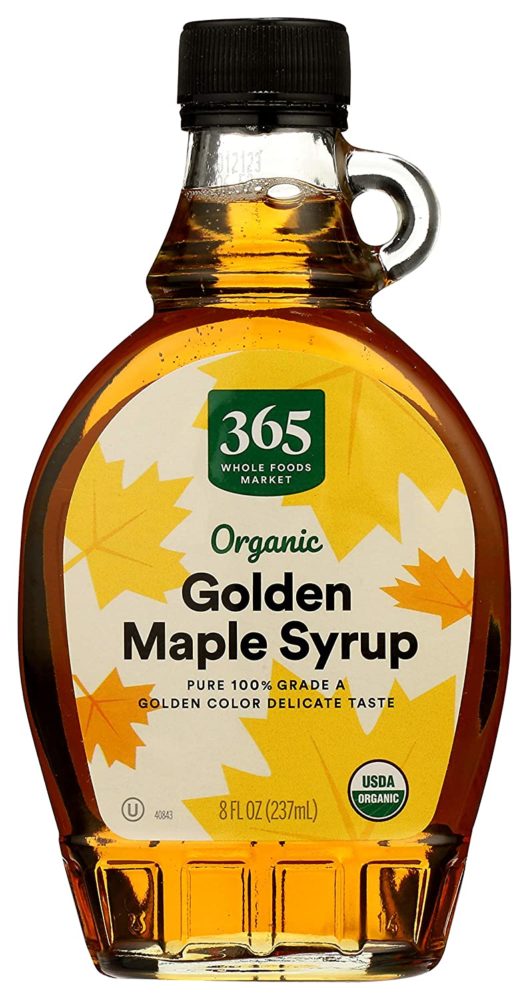
Pure maple syrup has a thick, sweet flavor profile, making it an excellent vanilla extract alternative. It can also add moisture and binding properties to your cookies and other baked goods. However, be careful not to use the imitation syrup though, as the flavor is quite different from vanilla extract. It can be used in the same proportion as well.
Honey
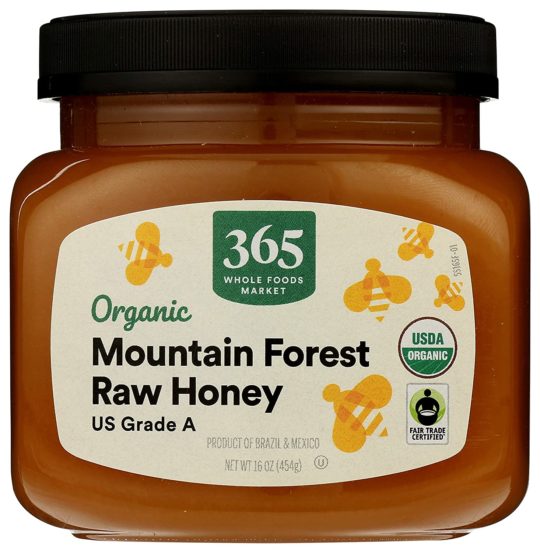
People usually add a bit of honey to vanilla extract in cookies, mostly likely to beef up the sweet taste and help with enhancing the aroma. It can also be used alone if you don’t have vanilla extract. It adds a bright, floral sweetness to your cookies and enhances the cookies’ texture. Using it in the same ratio would give you the perfect outcome.
Frequently Asked Questions (FAQs)
Is vanilla extract necessary for cookies?
Vanilla extract is not necessary for the structure of a baking recipe. However, but leaving it out of a recipe will change the flavor.
Can I use honey in place of vanilla extract?
Yes, you can. Honey is a great substitute but make sure you reduce the amount of sugar in your recipe.
What does vanilla extract do in baking cookies?
It enhances and upgrades other flavors in the recipe. Without it, your cookies would taste flat, and you wouldn’t like it at all.
Conclusion
When baking cookies, vanilla extract is a vital flavoring ingredient; it makes your cookies come out good with great flavor and taste. Not only that, it has numerous nutritional benefits as well. So if you want to opt for another close substitute for whatever reason, there are so many of them that you could use and still wouldn’t miss that savory flavor.